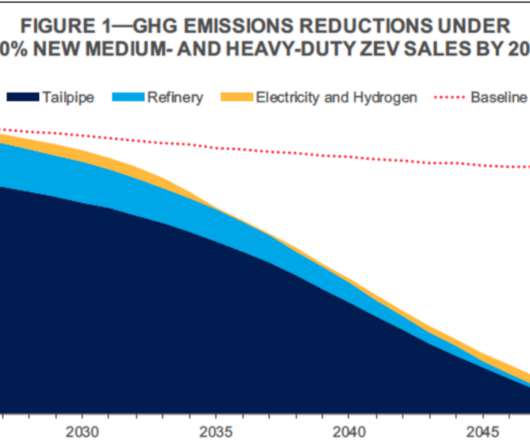Study explores impact of changing gasoline and diesel taxes in Europe
Green Car Congress
DECEMBER 27, 2013
Diesel is currently taxed at a lower level than gasoline in Europe; however, since 2011 the EC has been considering reversing that situation by making energy taxes systematically reflect the CO 2 performance of the energy product. A scheme including a decreased gasoline tax could bring about an increase in CO 2 emissions.



















Let's personalize your content